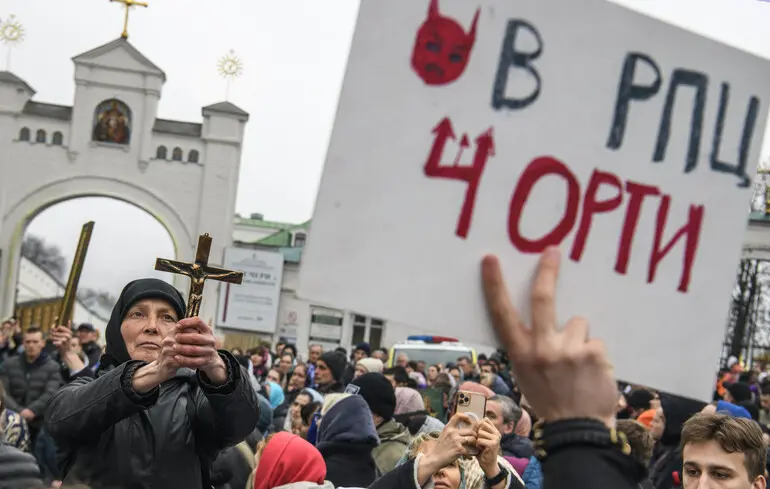The Future of the Ukrainian Orthodox Church (Moscow Patriarchate) Amid Ukraine-Russia Conflict: Internal Challenges and Geopolitical Strategies

Analyzing the situation surrounding the Ukrainian Orthodox Church of the Moscow Patriarchate (UPTs MP) reveals a complex interplay of ecclesiastical structures, political interests, and interstate ambitions within the context of the ongoing Ukrainian-Russian conflict.
The prospects for peaceful negotiations between Ukraine and Russia intensify debates over this church’s future, which remains a significant tool of Russian influence in Ukraine.
Conversely, its dissolution or substantial weakening could become a primary goal for Ukrainian authorities seeking to diminish pro-Russian influences on the religious front.
However, this process faces complications through prolonged legal battles and confrontations between government bodies and church institutions.
According to new legislative acts and directives from state agencies, UPТs MP received a clear deadline — August 18 — to eliminate any signs of affiliation with the Moscow center, yet its leadership refuses compliance, claiming these directives do not concern them.
In this context, only awaiting court decisions remains, likely to drag on for years — a strategic move that allows church structures to delay and resist sanctions.
Meanwhile, policies of ‘wait and see’ are beginning to bear fruit, as both sides prepare for new negotiations.
Internal scandals and information provocations continue to shape the narrative: allegations of a Russian passport for Metropolitan Onuphrius, searches in his native Chernivtsi-Bukovina diocese, and manipulation with compromising photos serve to heighten tensions and reinforce myths about his loyalty to Russia.
Additionally, in the regional geopolitical arena, Russian influence looms large, especially in Bukovina, which is embroiled in Ukrainian, Russian, and Romanian intrigues.
This highlights how deeply pro-Russian sentiments are embedded within ecclesiastical and political circles and how they serve strategic aims.
For Ukrainian policy, challenging UPΤs MP aims to reduce its influence and isolate pro-Russian factions — but these are long-term processes that may take years.
Notably, the current attempts at leadership change focus on Metropolitan Onuphrius and potential rivals, whose names are linked with efforts to weaken or ‘restructure’ the church.
The broader strategy depends on alliances, internal agreements, and geopolitical interests, turning church developments into a miniature theater of Ukraine-Russia relations.
Ultimately, all this revolves around one key goal: maintaining control and competing for the future of the church, which may become a symbol of new phases in Ukraine-Russia confrontation.

